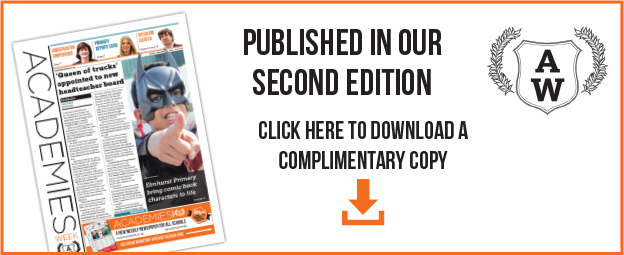Having co-authored a new report suggesting performance would improve if the government let every primary school spin out from its local authority and join an academy chain, Annaliese Briggs explains the thinking behind her idea
There is something of a perfect storm ahead for primary schools. Pupils’ performance has steadily improved, but a combination of capacity challenges and higher expectations from government runs the risk of stalling – or reversing – this trajectory.
Alongside a new curriculum, primaries are facing a headteacher succession crisis and are looking to financially strapped local authorities who are finding it increasingly difficult to deliver services. The end result could be that a fifth of all primaries will fall below the new higher floor targets from 2016. Our new report its Primary Focus: the next stage of improvement for primary schools in England sets out a series of proposals aimed at avoiding this scenario.
We conclude that the solution to continued improvements is the ability of primary schools to quickly build the capacity and capability that they need to improve teaching and learning. The question for government is how best can the expertise of the best schools, leaders and teachers be harnessed and magnified to deliver benefits across the wider system?
Our answer is through groups of schools coming together into formal academy chains – bound by shared accountability, and with the freedom to make the changes that reflect their needs. We recommend that over the course of the next parliament, the government commits to a transformation programme whereby every primary school spins out from the local authority and chooses a chain to join. To involve as wide a group as possible, we propose that any local authority that wishes to can set up its own chain, called a “learning trust”.
Let’s deal with one issue straight away – is academy status a panacea? No, it isn’t. It will not, in our view, necessarily deliver improvements (though the evidence surveyed in the report suggests that effective academies can deliver significant benefits for pupils). The rationale for academy chains is that these structures represent the best chance of building capacity and capability through combining the advantages of autonomy with the advantage of sharing effective practice – what is sometimes called system leadership.
As various academics, including David Hargreaves, Toby Greany and Robert Hill, have argued, system leadership has the potential to establish collaborative practices; to support teachers and individual leaders to focus on effective teaching and learning; and to promote a culture of continuous improvement and development. This, in turn, is what improves outcomes. While some local authorities can offer elements of this, the specific pedagogical elements of system leadership from academy chains are unique.
The specific pedagogical elements of system leadership from academy chains are unique
Yet academies have always been seen by primaries as far more of a secondary policy. To date only 11 per cent of primaries have taken up academy status, compared with 56 per cent of secondaries. In the absence of any shift of policy, far too few primaries will be in a position to benefit from the advantages of scale.
Our proposed programme – “Wave 3 Academies” – is unlike forced conversion because schools themselves choose their chain. Schools could join a primary-only chain, create their own or partner with a local secondary – all of which will also need to come out from local authority oversight over the same timescale. Alternatively, if primaries benefited from working with their local authority, they could join the new learning trusts. It would be up to the new regional schools commissioners (or Labour’s directors of school standards), to ensure that chains perform well. If they don’t, chains could be closed down or schools moved, just as now. We also propose that most academies could switch chains if they believed their teachers and pupils would be better served elsewhere.
This deliberate policy shift and evolution of the academies programme gives the primary sector the means to shape their own future for the benefit of the pupils they serve. It should be the primary focus of any government after 2015.
Annaliese Briggs is a research fellow in education at Policy Exchange








Your thoughts